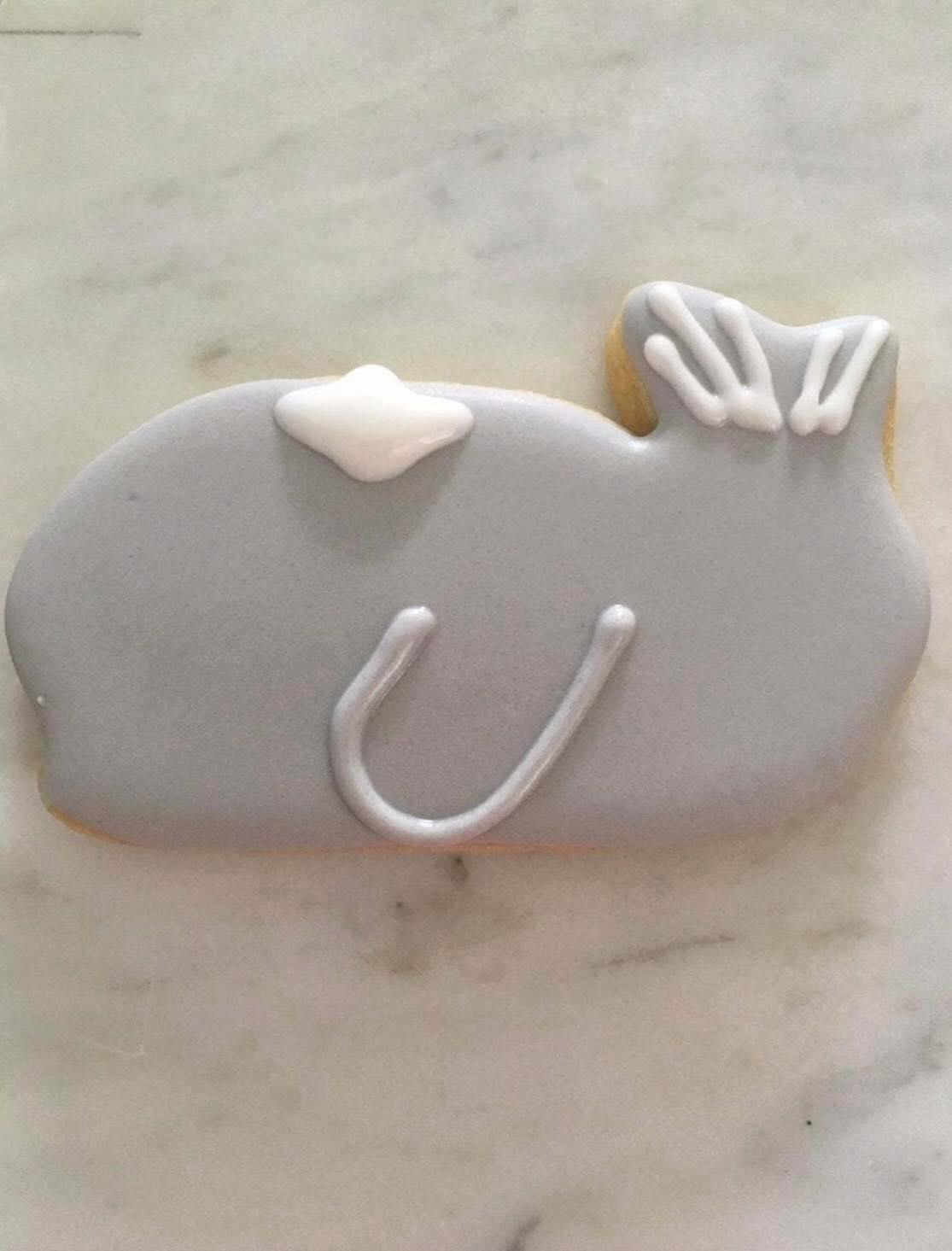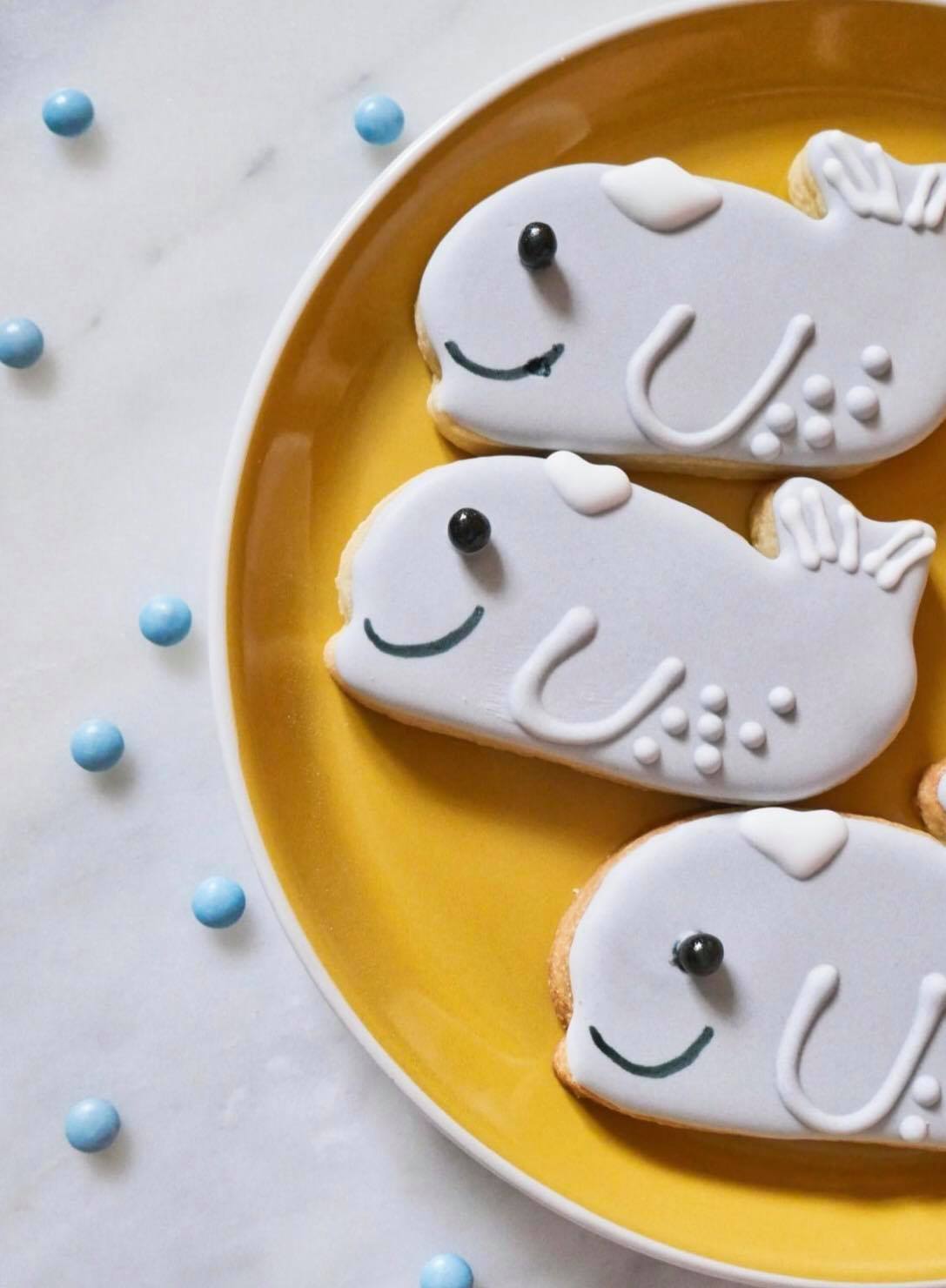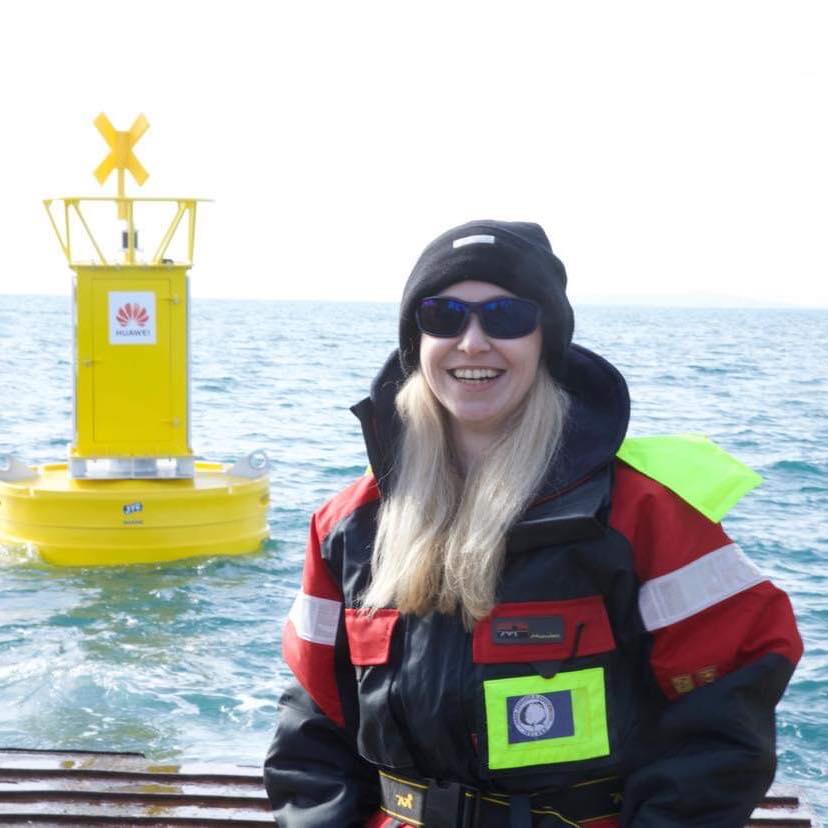HOW TO MAKE WHALE COOKIES - HOLIDAY BAKING PROJECT!
Emer Keaveney | 24th of December 2020.
Tis the SEAson to be jolly, and what better way to spend quality time with your ocean loving children, friends or spouse over the Christmas Holidays than to have a "whale of a time" baking delicious treats for all to enjoy! I mean after all, who doesn't love whales? These whale cookies are super easy to make and you can choose the colours you want to customise, with a soft but firm sugar cookie base.
Whales have been in the public eye since the 1970's "SAVE THE WHALE" movement. They have been featured in blockbuster films like "Finding Dory" and "Free Willy" and are a majestic icon of ocean conservation. Ireland has a a number of whale species that we aim to conserve and protect, we can see them from land or boat all around our island nation, and now we can bring them home to share with our loved ones.
We put together a quick recipe for whale cookies for anyone that wishes to make some underwater themed animal cookies without any hassle. If you want to add your own theme, you could also use this recipe to make shark, seabird, octopus or seahorse cookies! You just need two colours of icing to make these really cute, easy to make, tasty. treats!
What you need -
INGREDIENTS:
To make about 15 cookies you will need:
- 100g (4oz) of icing sugar
- 73g (3 oz) of soft margarine
- the yolk from a large egg
- vanilla essence
- 150g (5oz) plain flower
- eco-friendly alternative to cling film (plastic wrap) - e.g. parchment paper
- a greased baking sheet and baking tray
-
whale shaped cookie cutter
To decorate the whale cookies you will need:
- an egg yolk
- food dyes (we recommend blue, black and yellow food colouring)
- a toothpick
Oven Cooking Instructions:
- Pre-heat the oven to 180
°/ gas mark 4
Base of Cookies -
Step by Step Guide:
STEP 1: Sift the icing sugar through a sieve into a large bowl. Add the margarine and mix well until they are smooth!
STEP 2:
Add a large egg yolk and stir into mixture. Add a few drops of vanilla essence and mix well.
STEP 3:
Hold he sieve over the bowl and pour the flower into it. Stir the flower through the sieve to remove any lumps.
STEP 4: Mix the flower until you get a smooth dough, wrap the dough in parchment paper and store over night.
STEP 5:
Place egg yolk into a bowl and beat it with a fork. Then place it into three saucers and mix a few drops of food dye into each one. Separate your icing sugar into three bowls and add the food colouring. ( To make a grey colour, simply add a tiny bit of black food colouring, to create turquoise, add about double the amount of blue: yellow, you can also leave some as white to create the spout of the whale).
STEP 6:
Take the dough out of the freezer. Roll out half of it onto a floury surface, until it is as thin as your little finger.
STEP 7: Press out shapes with your whale cookie cutter or use a sharp knife to create your own unique whale shapes. Use a fish slice or equivalent to place the cut out shapes onto the baking tray. Roll out the other half of the dough and repeat.
STEP
8: Outline the entire whale with one colour of icing sugar and let it dry at room temperature.
STEP 9: After the base is dry, use the same colour as the whale to create a "U" shape pectoral fin and make little balls to stick to the whale's body for added texture detail. You can also add some lines on the tail and a heart shape on the top for the spout (make a different colour - white). Add a black pearl or sprinkle for the eye and a line for its mouth.
STEP 10: Bake the cookies for 10-12 minutes, the remove them from the oven and let them cool for a little and there you have it! Whale Cookies!

















